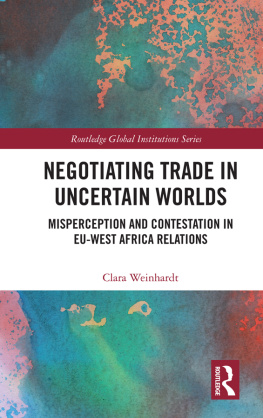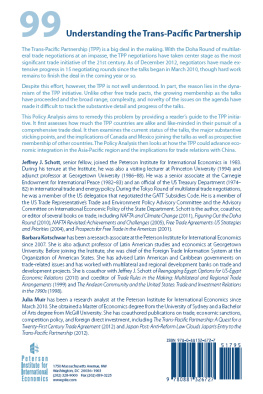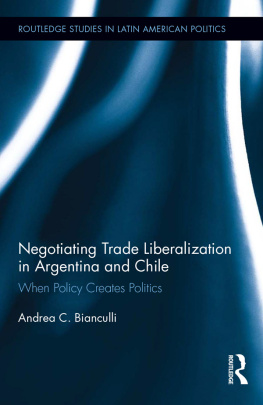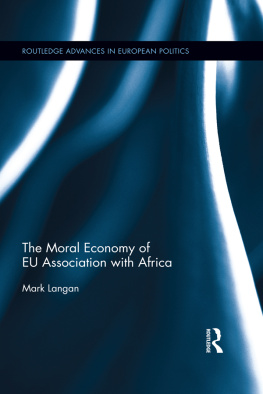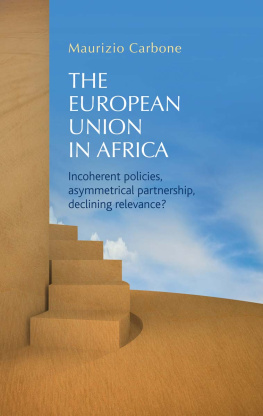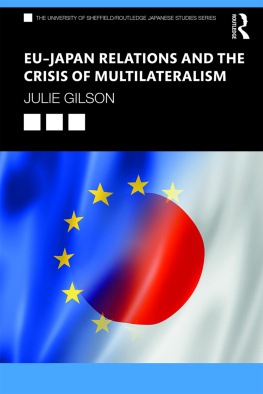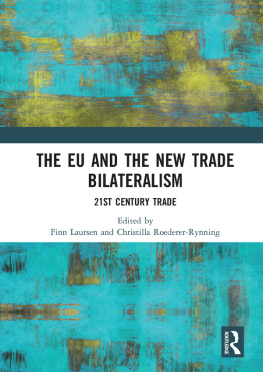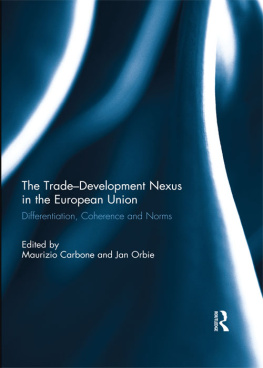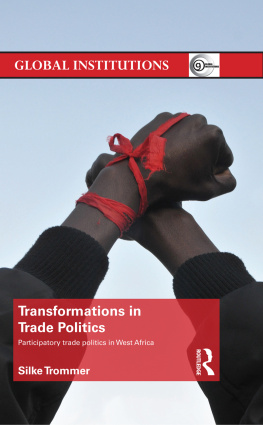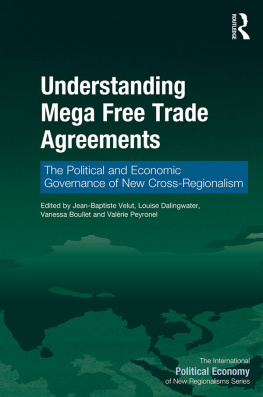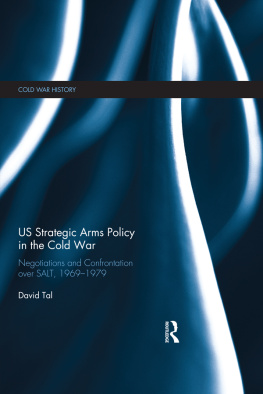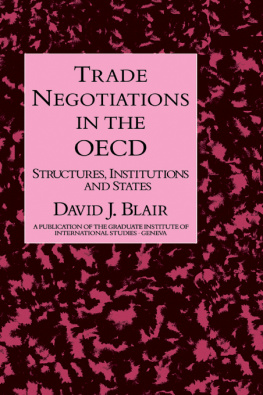Scholars have long asked about the games nations play. Clara Weinhardt takes us a step further by dissecting with profound analytical flair a decade of fraught negotiations between Europe and West Africa over their new economic relations. Beyond diverging interests, she shows how impasse can be rooted in radically diverging expectations over which game the parties are playing in the first place. If only such disjunctures could be acknowledged and overcome, we would live in a much more cooperative world. This book will be of critical interest to anyone interested in game theory and international affairs, the political economy of trade or EU external relations and Africa.
Kalypso Nicoladis,University of Oxford, UK
States sometimes fail to cooperate, even when cooperation is in their interests. This impressive book combines elements of economic and sociological thought to show how states inability to understand one another leads to breakdowns in trade negotiations. Scholars and practitioners interested in global cooperation, difference in international politics, or the future of trade need to address Weinhardts important book.
Eric Grynaviski,George Washington University, USA
Clara Weinhardts book breaks new ground by deploying constructivist theory to clarify how uncertainty about the rules of the game between the EU and ACP countries led to misperceptions about the interests and expectations of the negotiating partners. The unique contribution of the book lies in the creative way in which the author convincingly demonstrated how these misperceptions led to miscalculation of possible equilibrium outcomes as well as the ongoing impasse in the negotiations. This book will be a valuable resource to academics working on NorthSouth trade relations, policy makers and trade negotiators on both sides of the Atlantic.
Samuel Ojo Oloruntoba,Thabo Mbeki African Leadership Institute, University of South Africa, South Africa.
Negotiating Trade in Uncertain Worlds
This book shows how a constructivist account of bargaining sheds new light on the emergence of impasse situations in international trade negotiations. It uncovers the subtle ways in which misperceptions and the problems of overcoming them complicate negotiations. It brings to the forefront misperceptions and sticky beliefs that complicate trade talks between the Global South and the Global North.
Empirically, the book examines the recent negotiations of Economic Partnership Agreements between the European Union (EU) and West Africa (20022014). In doing so, it enriches the study of negotiations of development-oriented trade agreements in the context of a major North-South partnership. By exploring a constructivist perspective on game theory, the author uncovers how the repeated impasse situations followed from the different games both sides expected to be playing. The author shows that such misperceptions endured because they reflected deep-seated normative disagreements not only over the effects of neo-liberal trade reforms, but also over how to structure EU Africa post-colonial trade relations in the 21st century. Comparing and contrasting both sides divergent perspectives helps us to see how trade negotiations are never just about economic interests, but also about the (re)negotiation of the values and ideas that structure state interaction. The book draws on a large set of qualitative primary data on EU-West Africa trade negotiations.
Negotiating trade in uncertain worlds will be of great interest to students and scholars of international relations, international political economy, international trade, international negotiations, EU external relations, EU-Africa cooperation, economic diplomacy, international relations of the developing world, and North-South cooperation.
Clara Weinhardt is an Assistant Professor in International Relations at Maastricht University and a Non-Resident Fellow at the Global Public Policy Institute. Her research focuses on global governance and international negotiations, with a focus on North-South relations in trade. She completed her PhD in International Relations at the University of Oxford; her work appeared among others in International Studies Quarterly and the Journal of Common Market Studies.
Routledge Global Institutions Series
Edited by Thomas G. Weiss
The CUNY Graduate Center, New York, USA
and Rorden Wilkinson
University of Sussex, Brighton, UK
About the series
The Global Institutions Series provides cutting-edge books about many aspects of what we know as global governance. It emerges from our shared frustrations with the state of available knowledge electronic and print-wise for research and teaching. The series is designed as a resource for those interested in exploring issues in international organization and global governance. And since the first volumes appeared in 2005, we have taken significant strides toward filling many conceptual gaps.
The series consists of two related streams distinguished by their blue and red covers. The blue volumes, comprising the majority of the books in the series, provide user-friendly and short (usually no more than 50,000 words) but authoritative guides to major global and regional organizations, as well as key issues in the global governance of security, the environment, human rights, poverty, and humanitarian action among others. The books with red covers are designed to present original research and serve as extended and more specialized treatments of issues pertinent for advancing understanding about global governance.
The books in each of the streams are written by experts in the field, ranging from the most senior and respected authors to first-rate scholars at the beginning of their careers. In combination, the components of the series serve as key resources for faculty, students, and practitioners alike. The works in the blue stream have value as core and complementary readings in courses on, among other things, international organization, global governance, international law, international relations, and international political economy; the red volumes allow further reflection and investigation in these and related areas.
The books in the series also provide a segue to the foundation volume that offers the most comprehensive textbook treatment available dealing with all the major issues, approaches, institutions, and actors in contemporary global governance. The second edition of our edited work International Organization and Global Governance (2018) contains essays by many of the authors in the series.
Understanding global governance past, present, and future is far from a finished journey. The books in this series nonetheless represent significant steps toward a better way of conceiving contemporary problems and issues as well as, hopefully, doing something to improve world order. We value the feedback from our readers and their role in helping shape the on-going development of the series.
A complete list of titles can be viewed online here: www.routledge.com/Global-Institutions/book-series/GI.
Negotiating Trade in Uncertain Worlds
Misperception and Contestation in EU-West Africa Relations (2019)
Clara Weinhardt
Towards a Global Consensus Against Corruption (2019)
International Agreements as Products of Diffusion and Signals of Commitment
Mathis Lohaus
Multinational Rapid Response Mechanisms (2019)
John Karlsrud and Yf Rykers
The IMF, the WTO & the Politics of Economic Surveillance (2019)
Martin Edwards
Accessing and Implementing Human Rights and Justice (2019)

